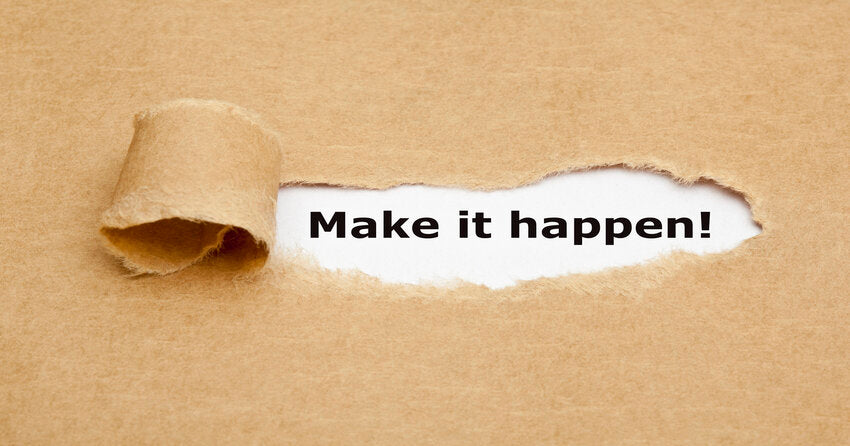Living With Purpose

In the goal setting part of my coaching work, I ask my clients to imagine what life would be like if good illness management helped you to reach a level of being 80% better – a life where the illness still has to be considered and worked with, but where you’re mostly in control and feeling relatively well. The strongest theme that comes up is being able to have a sense of usefulness and purpose.
Early man’s purpose was very simple: survival. Each individual, family group or tribe would be fully responsible for meeting all of life’s needs. But in today’s society, it’s no longer a case of ‘if you don’t hunt and gather, you don’t eat.’ Our life is supported by each of us taking up roles that contribute to society as a whole. Without individuals having a strong desire to contribute in their own unique and individual way, there is no way our society could function so effectively as a collection of such highly specialized roles. I believe that we have evolved to have a natural desire to live with purpose, and that sense is most fully met either through working or bringing up a family. Then chronic illness comes along and wipes away our ability to be useful in those ways.
I like to look at purpose as something that changes over our lifetime. We have a different purpose as children, adolescents, young adults, parents, workers and when we are retired. I don’t believe that everything in life is predestined to lead us towards a particular purpose; instead, I believe we can choose our purposefulness and change it as often as we want to. For me though there are two purposes that stay constant throughout the lifespan.
The first is to learn and to grow,
the second to love and to be loved.
As working-age adults, we often tend to forget the value in these things when we’re so programmed to contribute to a specialized role that will support the productivity of society. However, they are enormously important. How could anybody in society be happy if there was no love? How could anything ever be created or achieved if we were unable to learn?
Feeling useful and having a sense of purpose isn’t just about our ability to take a productive role in society; it also depends on how much value we place on things. We place a high value on allowing children to have a childhood; however, as a chronically ill person, we tend not to place a very high value on allowing ourselves the freedom we need to be as well as possible. We tend to value other people’s productivity far more highly.
I believe my purpose in life is to be as happy and healthy as possible so that I’m able to share whatever joy and gifts I can with others. My purpose is to learn and to grow and be a part of other people’s learning and growth. I chose to value all the little ways I can do this just as highly as when I worked a 60-hour week looking after children with emotional and behavioral difficulties.
So my number one purpose is to learn how to be as happy and healthy as possible; to look after myself, become an expert in illness management, and to make myself as well as possible. (I choose that purpose because the medics aren’t yet very good at doing it for me!) I also choose to learn how to be happy despite my limited energy, because I can contribute to the happiness of those around me better when I am happy.
Having a chronic illness doesn’t prevent me from loving or being loved (even if it restricts the way I can do those things). I can still choose to wish others happiness, joy and laughter. I can still lovingly listen and share the happiness of those I care about. I can listen and support others even if I must choose to restrict the time I make myself available for such things. When I was too poorly to do much else, I would cultivate that love by bringing somebody to mind and then visualizing them having fun and laughing. I would go through all my friends and family one by one and then aim to send that love to people I didn’t know, expanding to cover everyone in the world. My purpose then was to contribute to the amount of love that there was in the world, even if I couldn’t do so actively.
Before I was well enough to play a part in the workforce, I started contributing by planning and cooking the household meals. One of the ways I found to value that highly was to recognize what a high proportion of my disposable energy I was devoting to my contribution! And it removed the stress from another member of my family who was perfectly happy to chop and wash up but found thinking about what to eat a burden.
Now that I’m well enough to share my gifts (working from home part time), many of which relate to what I have learned through overcoming my challenges. But we don’t have to wait until we are well enough to work to have a sense of purpose; we just have to place a high enough value on the purpose that is in the things that we are able to do!
This article was first published on ProHealth.com on June 9, 2016 and was updated on May 8, 2021.
Julie Holliday is a holistic life coach and writer committed to helping people overcome their challenges and live a great life despite chronic illness. Writing as the ME/CFS Self-Help Guru, Julie shares tips on her weekly blog. You can also follow her on Twitter and Facebook.





